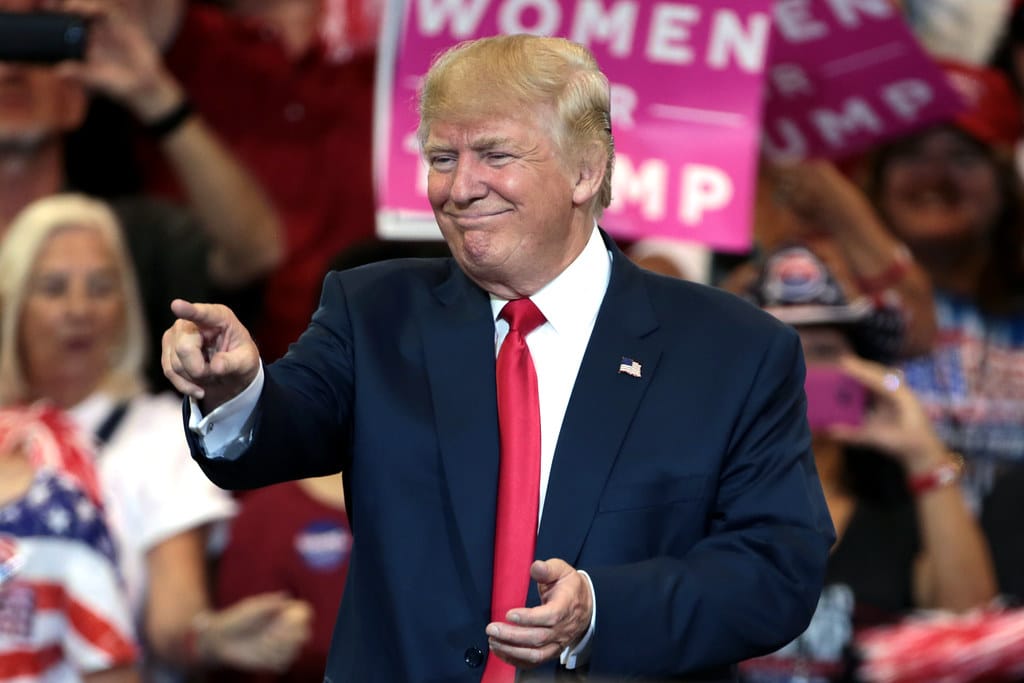Over the past few weeks, former President Donald Trump has been releasing some of his proposals if he were to return to the White House in 2024. While many of his positions pose great danger to personal liberty, such as his plan to “end crime and keep Americans safe,” his proposals on tariffs are near the top in terms of ignorance.
In a video posted on February 27, Donald Trump released his plan to “end our reliance on China.” In the short video, Trump claims that his plan would increase American jobs by the millions and remove our dependence on China. The Trump War Room Twitter account proclaimed he would “revive Mercantilism for the 21st Century.”
Trump’s promoting of tariffs would be disastrous for the economy. The increase in the costs of production manipulates competition as it leads to people spending more money on a product than they otherwise would have. People would be better off buying products in their self-interest at the cheapest cost.
Let us say America were to propose a tariff on a sweater company from Britain to incentivize American made sweaters. Since the tariff can be altered so high that it forces Americans to buy domestically, the prices of the American sweaters would be expensive since the demand for American-made sweaters would skyrocket. The extra money a consumer lost due to the tariff could have gone somewhere else in the economy.
If the tariff were to be exponentially higher and the hypothetical industry were to be started, it would need workers. If this new company needed 30,000 workers, it would need to come out of another sector of the economy. Therefore, no net gain is achieved.
Sadly, Trump did not understand this economic concept when he came into office in 2017 and he still does not. Trump wasted no time before to increase tariffs to boost domestic growth, but failed to accompish his goal.
In a report conducted economist Erica York of the Tax Foundation, the Trump tariffs imposed nearly $80 billion worth of new taxes on Americans, equivalent to one of the largest increases in decades. They also reported that his tariffs reduced long-rung GDP growth by 22 percent, wages by 14 percent, and full-time equivalent jobs by 173,000.
The tariffs implemented in 2018 and 2019 have led to direct burden and deadweight loss, according to numerous economists. In fact, the amount of burden costed was roughly $800 per household.
Industries also took big hits as well. Aaron Flaaen and Justin Pierce found that the tariffs were associated with “relative increases in producer prices via raising input costs.” Between February 2018 through January 2020, the tariffs were estimated to cost American companies $46 billion, and exports of goods hit have fallen sharply.
The claim that Trump would bring mercantilism to the twenty-first century clearly shows the former president’s ignorance of economic history. Mercantilism, as defined by economist Murray N. Rothbard, is “a system of statism which employed economic fallacy to build up a structure of imperial state power, as well as special subsidy and monopolistic privilege to individuals or groups favored by the state.”
Thanks to this policy, monopolies such as the East India Company and the French East India Company were formed. Countries such as Great Britain adopted these policies, and it cost them economic growth and freedom of colonial business.
Further consequences were seen in the tax revenue used to build the power of the English government, along with the” multiplying of the royal bureaucracy needed to administer and enforce the regulations and tax decreed,” according to economist Thomas J. DiLorenzo. The consumers lost out on the government restrictions on production on top of hampering the division of labor imposed by the bureaucrats.
It was only after Britain extended the trading market that economic growth could be achieved. According to Professor Robert Allen, the expansion of international trade led to Britain’s “high wage, cheap energy economy, and it was the springboard for the Industrial Revolution.”
Eventually, free trade began to flourish as countries saw high economic growth and reductions in poverty. Countries such China embraced free trade after decades of failed communism, including with America. Both sides benefited from free trade, benefits that gives Americans an extra $260 of extra spending a year, according to economists Xavier Jaravel and Erick Sager.
America has seen great benefits from free trade over the last several decades. According to a report published by the Peterson Institute for International Economics, the payoff for American trade between 1950 and 2016 was at $2.1 trillion. This increased the GDP per capita by around $7,000 and GDP per household to $18,000.
Companies also see great benefits as well. Almost 11 million jobs are depended upon the export of American goods and services, as well as foreign direct investments.
Despite all the great benefits from free trade, people like Donald Trump continue to ignore basic economics and instead implement disastrous economic plans.







